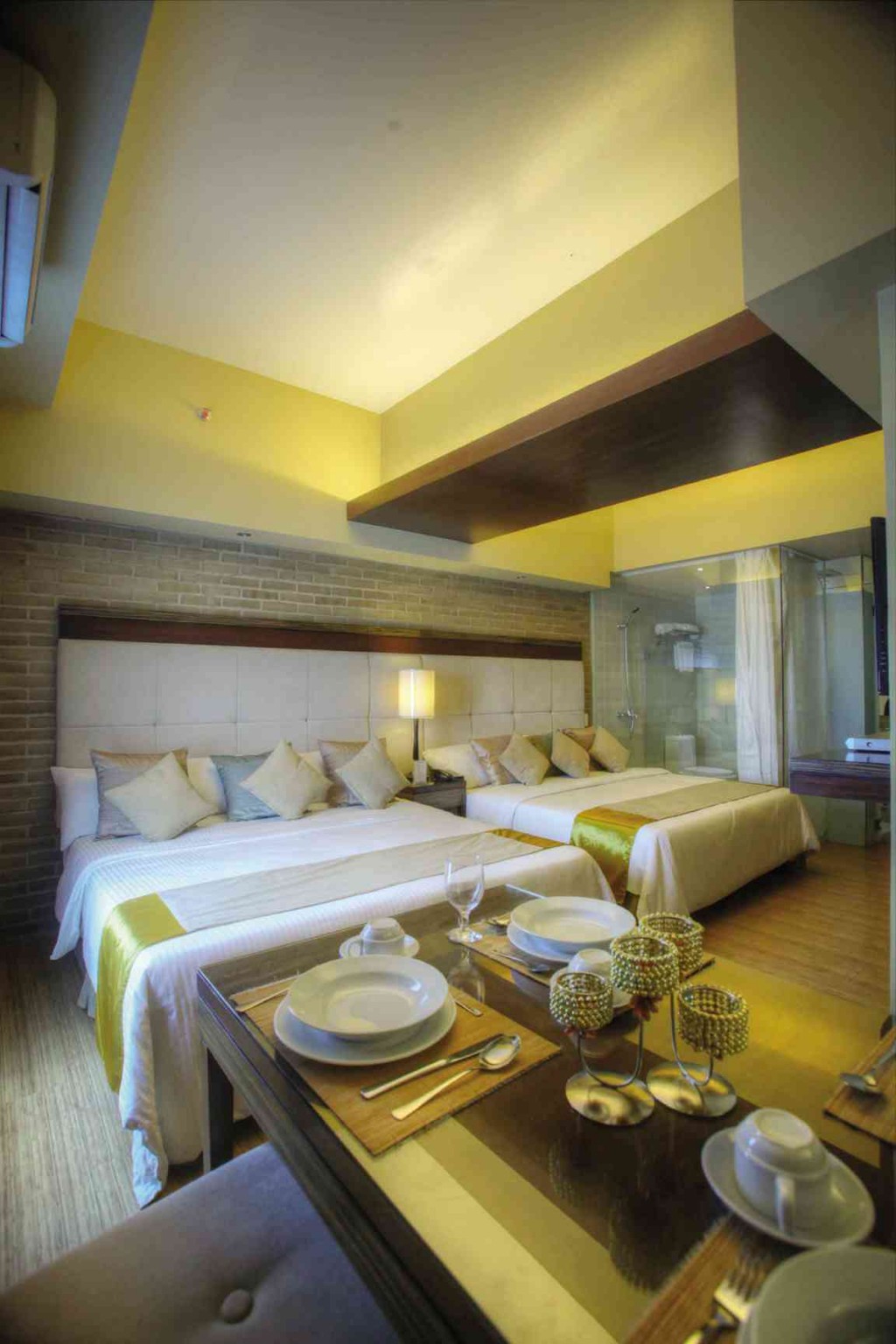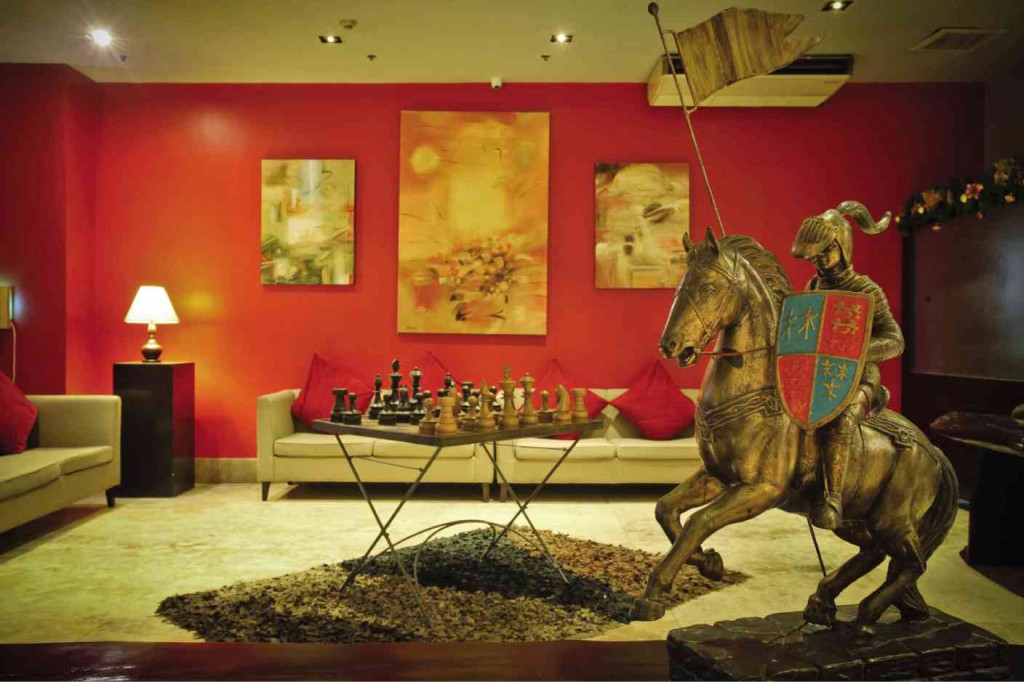Builder redefines vertical landscape
Ronald Lim, 46, only wanted to build things better, but he ended up changing the property landscape.
Lim admits that he is no son of a tycoon. There was not a pile of money he could dip his hand into. It was a difficult to build things from the ground up with only internally generated funds. But he did it anyway. He was a man on a mission with a vision.
His career in real estate began when he was 17 years old. A cousin who was then working as a sales manager for a developer of residential lots asked him to talk to people who are interested in purchasing houses and lots. His cousin told him that he would give Lim a “referral fee” for each purchase.
Lim obliged and he introduced the parents of his classmates to his cousin. Eventually, his referrals increased. In less than a year, he received an award as the top producer of referrals. At a young age, Lim had an inkling that real estate was his place under the sun.
Financial crisis
Article continues after this advertisementAfter completing his course in mechanical engineering at De La Salle University, Lim set his sights on building better structures.
Article continues after this advertisementAt age 28, he purchased a 50-room condominium project in Cebu, which he wanted to turn into something fresh and innovative.
But then, Asia was rocked by a financial crisis in 1997. It initially dashed Lim’s hopes to make his mark in the property business. That year, he and his family decided to leave the country and settle in the United States.
Sometime later, he received an e-mail from an Australian friend who was based in Japan. The friend asked Lim to look around for investment opportunities. That prompted Lim to pack his bags bound for the Philippines.
As expected, everyone was leery of engaging in the real estate industry so soon after the Asian financial crisis.
But Lim thought otherwise. He saw opportunity in those trying times. He set up Pacific Concord Properties and, in 2001, he negotiated with land owners in Mandaluyong City.
The 42-story condominium that came out of those negotiations was called Lancaster Suites.
“I think it was one of the first buildings launched after the Asian financial crisis,” Lim said.
It was completed in 2007 and officially opened its doors in 2008.
The establishment was essentially a condotel—a cheaper yet comfortable alternative for tourists who need to stay in the country for an indefinite period without having to contend with hotel prices.

THE CONDOTEL continues to draw overseas Filipino workers who want a low-cost home that is well maintained.
Hassle-free investment
The units are regularly maintained by professional hoteliers and have all the amenities of a hotel. In addition, it is a hassle-free investment for Lim because leasing and utilities, including maintenance, insurance and real estate taxes, have all been taken cared of.
But the problem back then was that no one was buying property in the Philippines.
So Lim shifted his focus to overseas Filipino workers (OFWs).
“We penetrated the market in the United States. We sold it as a condotel. And people bought units as investments. We also reached out to Canada,” Lim says.
Next year, a 42-story second tower with 612 rooms, will rise. This will cement Lancaster Suites’ position as one of the largest in Metro Manila.
Cabintel
At present, Lim has set his sights on “value travelers.”
In answer to their demand, he set up the “cabintel”—an 8 square-meter room with double-deck and pullout beds.
A family of six can fit comfortably in this space.
He explains that, thanks to the availability of cheaper flights, more families are now opting to travel.
“Hotel is synonymous to airline. It has to match the affordability of the airfare. It must match the purchasing power of the people,” he says.
The smaller the room, the more it becomes affordable to most people because the operating cost of maintaining an eight-square-meter room also drops.
Lim now faces the challenge of striking a balance between operating expense and profit. He says that the tight budget of most travelers nowadays is no longer lucrative for the hotel industry. For them to remain competitive, they need to identify areas of improvement.
Lim likes to zero in on the maintenance of the building. It has to exude positivity and cleanliness at all times. Guests should always feel like this is the first time they’ve set foot in the building.
Lately, Lim has been shying away from the high-rise. Two horizontal projects in Tagaytay and Bacolod are in the pipeline.
The 87-hectare property in Bacolod, called “The Hacienda,” will be a mini-township with retail and commercial area, residential communities, theme parks, marina and boardwalks. The company broke ground last February.
Next year, he will launch the 18-hectare project along Taal Lake in Laurel, Batangas.
“I will introduce the cabintel concept in all the developments,” he said.
That out-of-town gig excites Lim because he has been given the opportunity to play in a bigger area. He now has more freedom to toy with the architecture and aesthetics of the place.

